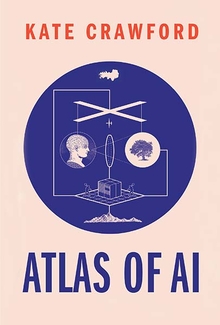Atlas of AI. Power, Politics, and the Planetary Costs of Artificial Intelligence
Artificial intelligence is not an objective, universal, or neutral computational technique that makes determinations without human direction. Its systems are embedded in social, political, cultural, and economic worlds, shaped by humans, institutions, and imperatives that determine what they do and how they do it. They are designed to discriminate, to amplify hierarchies, and to encode narrow classifications. When applied in social contexts such as policing, the court system, health care, and education, they can reproduce, optimize, and amplify existing structural inequalities. This is no accident: AI systems are built to see and intervene in the world in ways that primarily benefit the states, institutions, and corporations that they serve. In this sense, AI systems are expressions of power that emerge from wider economic and political forces, created to increase profits and centralize control for those who wield them. But this is not how the story of artificial intelligence is typically told.
The standard accounts of AI often center on a kind of algorithmic exceptionalism—the idea that because AI systems can perform uncanny feats of computation, they must be smarter and more objective than their flawed human creators.
